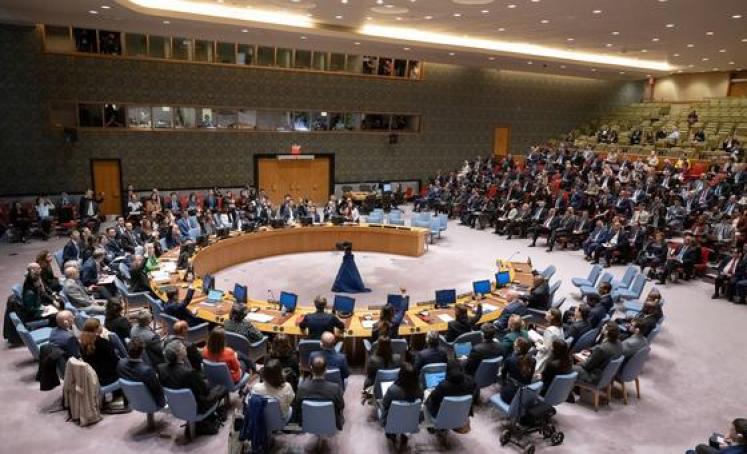New York— The UN Security Council on Thursday passed a resolution that included among other things allowing the Libyan Investment Authority (LIA) to reinvest frozen cash reserves. This is the first time that LIA has been allowed to do so since 2011.
The SC updated its sanctions regime on Libya by “exempting certain activities from the arms embargo on that country, allowed for the investment of its frozen assets and created new sanctions designations for those involved in the illicit trade in Libyan petroleum products,” a UN press release said on 16 January 2025.
LIA’s estimated $70 billion in assets include $29 billion in global real estate owned by LIA itself, $23 billion in deposits invested in Europe and Bahrain, $8 billion in shares spread across more than 300 companies around the world, and has about $2 billion in outstanding bonds.
In August 2024, LIA’s CEO Ali Mohamed Hassan told reporters that the Authority plans to seek approval from the Security Council for two parts of its overall investment plan; the first is to cover its equity portfolio, and the second aimed at the implementation of a domestic investment plan. The focus of the latter will be on investing in solar energy and helping to boost oil exports.
The value of the assets targeted for investment based on the Security Council resolution is approximately $10 billion, and they will be invested in deposits at foreign banks and government bonds. The Libyan Investment Authority’s investment policy requires dealing with banks with a credit rating of “BBB”.
The resolution 2769 (2025) authored by the United Kingdom was passed by 14 votes with none against – permanent Council member Russia abstained.
the Security Council, acting under Chapter VII of the Charter of the United Nations, demanded “full compliance with that arms embargo, called on all Member States not to exacerbate or intervene in the conflict and reiterated that those individuals or entities determined to have violated the provisions of resolution 1970 (2011) are subject to designation,” the release said.
On December 5, the Panel of Experts (PoE) briefed the sanctions committee on its final report, suggesting measures to accommodate a request from the Libyan Investment Authority (LIA) to reinvest its frozen assets, which have depreciated under the current freeze. It also highlighted an increase in diesel fuel smuggling, and recommended a new designation criterion to address this.
Among other measures, the Council decided to extend, until 1 May 2026, the authorizations and measures in resolution 2146 (2014), which relate to the inspection of vessels designated as attempting to illicitly export crude oil from Libya. The Council also decided to extend, until 15 May 2026, the mandate of the relevant Panel of Experts.
According to the UN press release, the representative of the Russian Federation, whose delegation abstained, “stressed that the adopted text does not fully guarantee that projects implemented by foreign partners in Libya to help unify local law enforcement will have the support of the Government and internal players. Expressing regret that efforts to make the resolution more balanced ‘unfortunately proved to be insufficient’.”
Nevertheless, “he underscored that external actors must not impinge on Libya’s sovereignty — otherwise the general security crisis that has existed since the “gross interference by the North Atlantic Treaty Organization (NATO) in 2011 will only worsen,” the release added.
